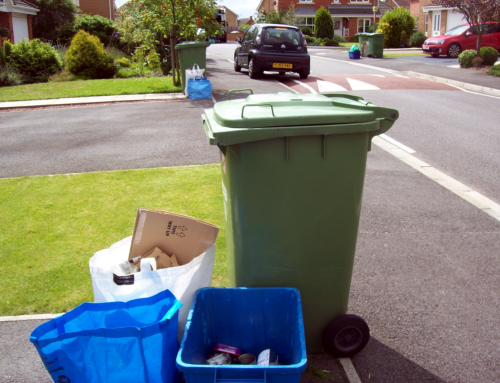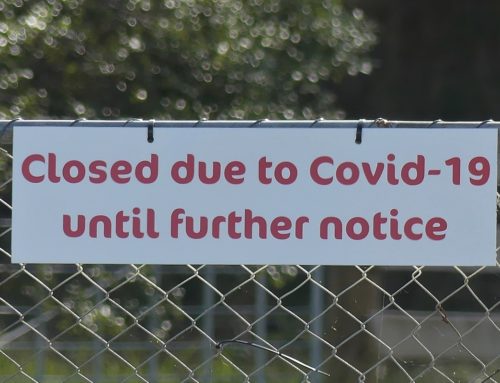It’s taken several years of sustained campaigning to bring marine litter onto the agenda, backed up by strategic work at the global and regional level by organisations like the UN, Regional Seas Programmes, the European Commission, national governments, and many others.
In the EU, its newfound prominence is reflected in the Marine Strategy Framework Directive (MSFD), the legislation that brings this long-neglected form of pollution into the regulatory fold. It states that by 2020, “Good Environmental Status” (GES) must be achieved for European seas, which for marine litter means that:
“Properties and quantities of marine litter do not cause harm to the coastal and marine environment”.
The recent launch of a Defra consultation on the UK’s MSFD Programme of Measures gives us a sneak peek of how the UK plans to achieve its MSFD obligations. As has become customary with recent Defra plans, it turns out to be a compendium of already implemented or agreed measures, with no new actions at all. So is the UK’s beach house already in order?
Listing to one side
The UK’s headline marine litter target is to achieve an:
“Overall reduction in number of visible litter items within specific categories/types on coastlines”
The consultation’s background document provides a long and varied list of existing and planned measures by which this will be achieved:
- OSPAR Regional Action Plan on Marine Litter (the UK is a party to the OSPAR Convention for the protection of the environment of the North East Atlantic)
- Marine litter strategies (Scotland and Northern Ireland)
- Sponsoring organisations such as Keep Britain Tidy and its Scottish, Northern Irish and Welsh counterparts
- Waste Prevention Programmes and Plans
- The UK Environmental Protection Act (EPA) 1990 and COPLAR (Code of Practice on Litter and Refuse)
- The Waste Framework Directive (EU)
- Landfill Tax
- The Water Framework Directive (EU)
- The Urban Wastewater Framework Directive (EU)
- MARPOL Annex V (international law banning disposal of waste from ships into the sea)
- Carrier bag charges in N. Ireland, Wales, Scotland and soon – England
- Fishing for litter initiatives
The list is so long that Defra confidently states that:
“Based on this inventory … we believe that our proposed programme of measures is sufficient to meet our targets and to help achieve or maintain GES”.
However closer examination reveals a lack of firepower in this superficially impressive arsenal.
OSPAR Bravo?
The first area of concern is the reference to OSPAR’s Regional Action Plan on Marine Litter. The Action Plan itself is a fantastic document that if widely followed would go a long way to stem the flow of marine litter. Defra concedes that many of the measures appearing there have not yet been implemented. But does the UK’s status as a contracting party to the OSPAR Convention and the adoption of the plan by OSPAR mean that the measures contained therein will be implemented in the future in UK waters? Not a bit of it.
At least a third of the Action Plan measures are classed as “Contracting Party Actions”, which Contracting Parties may choose to implement. Whether they might do so depends on a range of considerations including the other actions they may have implemented – but also, their complete discretion. The Action Plan states that contracting parties should include the suggested “Contracting Party Actions” in their MSFD programmes of measures. But there’s nothing in the Defra consultation to say which actions the UK will commit to implementing.

Lime and limpet green: litter abounds beneath our seas and washed aground. Photo by Andrea Westmoreland, via Wikimedia Commons.
The same applies to the “OSPAR Collaborative Actions”, which are being developed by small groups of Contracting Parties. The Action Plan states that it does not ‘pre-determine’ which of these will become measures, agreements or guidelines in the future, and so Defra’s reference to the Actions Plan doesn’t commit the UK to implementing – or even supporting – any of the collaborative actions in the future.
The fact that no new impact assessments are to be carried out as part of the MSFD implementation, strongly suggests that Action Plan measures such as deposit refund systems, mechanisms for MARPOL enforcement and extended producer responsibility schemes are not up for consideration. Without them, committing to the OSPAR Action Plan is rather less impressive than it sounds.
Getting Defra’s measure
Some of the measures Defra cites have little practical impact, while others are hardly relevant at all:
- Defra cites the fact that littering is a criminal offence as if it were the clincher in the battle against marine litter. However, no one claims that lack of legislation is the problem when it comes either to terrestrial or sea-based sources of litter: the issue is lack of enforcement.
- The devolved administration litter strategies are welcome steps, but are only the first step on a long path towards implementation and cover a small proportion of the UK’s population. A similar strategy for England is conspicuous by its absence, despite Keep Britain Tidy’s calls for one.
- Both the Water Framework Directive and Urban Waste Water Framework Directive could in theory be used to set standards regarding litter discharge to the aquatic environment, but in practice are not. Indeed, the Government’s own literature points out that the MSFD is intended to cover marine litter because the existing water acquis does not.
- The waste prevention strategy documents cite litter barely a handful of times between them, and then only in the context of specific measures (e.g. levies and deposit refund systems) that have not been widely implemented.
- The Waste Framework Directive principles of the circular economy and the waste hierarchy are important at a high level in bringing about a society that values resources more and therefore litters less, but neither contains any robust measures focused on tackling litter.
- The Landfill Tax (LFT) has no positive bearing on litter, and some argue that the high cost of disposal causes fly-tipping – although for members of the public it is generally a non-factor. Councils will only incur LFT on litter they actually collect – material left on the beach is tax free!
What does that leave that could possibly have a positive impact on marine litter?
Short measures
Defra’s 2012 impact assessment on the MSFD, although carried out before the OSPAR Action Plan came into being, assumed that new actions would be necessary to achieve our marine litter goals. That was based on assessments that marine litter was bad and getting worse, while most of the existing measures had been in place for years:
“The BAU report concluded that, under the current regulatory regime, litter will continue to be a problem, accumulating in coastal areas and the water column.”
For costing purposes, the impact assessment considered several measures, including:
- rolling out Fishing for Litter initiatives – to date implemented mainly in Scotland – across the whole of the UK at a cost of ~£900k over three years;
- tailoring existing awareness schemes to marine litter; estimated at £64.5k-£129k over 10 years;
- more bins on beaches; and
- more cleaning on beaches, with an additional £6.5m-£13m over 10 years suggested on top of current annual spend of £15m, supplemented by voluntary work.
These were paltry enough suggestions considering the size of the challenge: indeed, they were expected only to slow the rate of increase of marine litter found on coasts. To achieve a reduction (the target being consulted upon), a more extensive and expensive application of the measures was envisaged. But there are no proposals at all for new spending in the latest consultation document.
Hide bound
It appears that Defra’s long list of measures amounts to very little, although to appreciate this one has to do a good deal of cross-referencing. Indeed, an ungenerous appraiser might conclude that the purpose of the list was largely obfuscatory, to hide just how little was being proposed, when just three years ago Defra accepted that without new, properly funded measures, marine litter would just get worse.
Defra could counteract this, and make the job of consultation respondents much simpler, by detailing the new actions (albeit under current commitments) the Government plans to take with respect to marine litter. We could then see what work is planned, and feed back on whether the proposals appear adequate to the task. The final list of actions could form the basis of a national marine litter implementation plan, which could be properly impact assessed and to which the Government could be held accountable.
However, in the absence of anything quite that helpful from Defra, it is important that all those concerned about marine litter make their voices heard. The current consultation just isn’t clear enough to enable informed responses to be provided, and leaves open the possibility that no new actions are actually proposed. In that case, there’s little realistic prospect of the UK reducing marine litter at all.






Over the last couple of years I have seen the evidence of the damage that marine litter, especially plastic, is doing and the scale of the problem with plastic waste getting into what should be pristine waters. This is a significant problem with long term consequences.
Defra certainly knows this is a big problem and that the solution needs to be much bigger than they are proposing. What their consultation is effectively saying is either that they don’t have the resources of people or money to do anything about the problem or they just don’t believe that the rest of the world/EU will do what they need to and they are not prepared to spend limited resources on a solo mission. Either way it’s a pretty bleak picture.
Of course if they could bring themselves to address the need for a proper resource strategy in the way everyone is asking for, then some of the real progress needed on the marine environment could come as a bye-product of that and not be seen as an additional cost.
Phillip, you make some good points.
I do feel that the problem of marine litter can appear overwhelming – to the public and government – and can provide an excuse for not taking what might feel like unilateral action.
I do wonder if this is due to the media focus on approaches to removing marine plastics rather than on less glamorous but more effective (and cost-effective)preventative measures.
As you suggest, such measures enhance resource security and prevent land-based litter (and thus reduce inputs of litter to the marine environment). While ultimately it could be argued that reducing the amount of litter entering the marine environment is in everyone’s self-interest, what we now know about the negative impacts of terrestrial litter alone strengthens the case for individual countries to take action, even on a narrow definition of national self-interest.